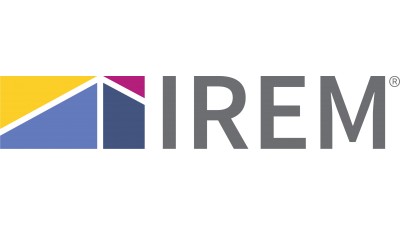Miniature Horses In Commercial Buildings? If They're Service Animals, The Answer Is Yes

The Charlotte-Mecklenburg School Board in Charlotte, North Carolina, earlier this year allowed the use of miniature horses as service animals in the classroom. An alternative to dogs, more Americans with disabilities are turning to horses because of their longevity and intelligence. Outside of the classroom, miniature horses have been increasingly allowed in commercial spaces from multifamily properties to offices.
Broad definitions for identifying service animals beyond canine companions has created a gray area in how building owners respond to requests. The Americans with Disabilities Act and the U.S. Department of Housing and Urban Development's Fair Housing Act differ on their classifications of service animals.
Technical Training Consultants President Patricia Trombello works with building owners to address these gray areas. Teaching landlords about best practices for meeting the needs of people with disabilities are an important part of complying with the Americans with Disabilities Act.
“The more education we can give these landlords on the rights that people with disabilities have, in order to have a service animal to service their needs, the better prepared we will be in the future to prevent discrimination or eliminate it,” Trombello said.
Landlord education when engaging prospective tenants with service animals was the focus of Trombello’s October iTalk session at the Institute of Real Estate Management’s Global Summit. Animals are often a tough topic of negotiation for landlords. Pets bring a higher probability of damage to a property than human tenants.

Service animals are not pets. They assist people with disabilities in their day-to-day lives so that they can enjoy equal opportunities in their housing and workplace as other individuals. Tenants who rely on service animals for physical or emotional support are exempt from pet deposits and weight limits. Restrictions on the type of animal, and where it can be within the building, also do not apply.
“If a wheelchair can go anywhere, a service animal can go anywhere,” Trombello said. “They assist people with disabilities and are permitted full access to the property.”
Service animals fall into two categories: assistive and companion. The latter, which help with a person’s emotional well-being, do not require special harnesses or identifying vests. Sometimes a resident/prospective tenant wishes to claim a pet as a service animal. If the person's disability is not apparent, medical verification may be requested to confirm the animal is necessary to accommodate a person's medically diagnosed condition, Trombello said.
The most a landlord can do is ask for this note and verify that it comes from a medical professional. If it is apparent that a tenant needs a service animal, a landlord cannot require a doctor’s note or medical verification, according to the ADA.
Property owners must accommodate persons with disabilities if they request a service animal that is necessary for their disability. These animals are typically not disruptive in any way if they are professionally trained. For instance, a trained service animal would not bark excessively to create noise disturbances for other residents.
"Having a policy on requesting medical verification is permissible if the disability is not apparent," Trombello said. "If the resident/prospective tenant cannot produce the verification, a landlord may deny the request," Trombello said.
If uncertain about how to respond to a service animal request from a tenant, landlords should research the proper response before acting.
To learn more about IREM, a Bisnow content partner, click here.

